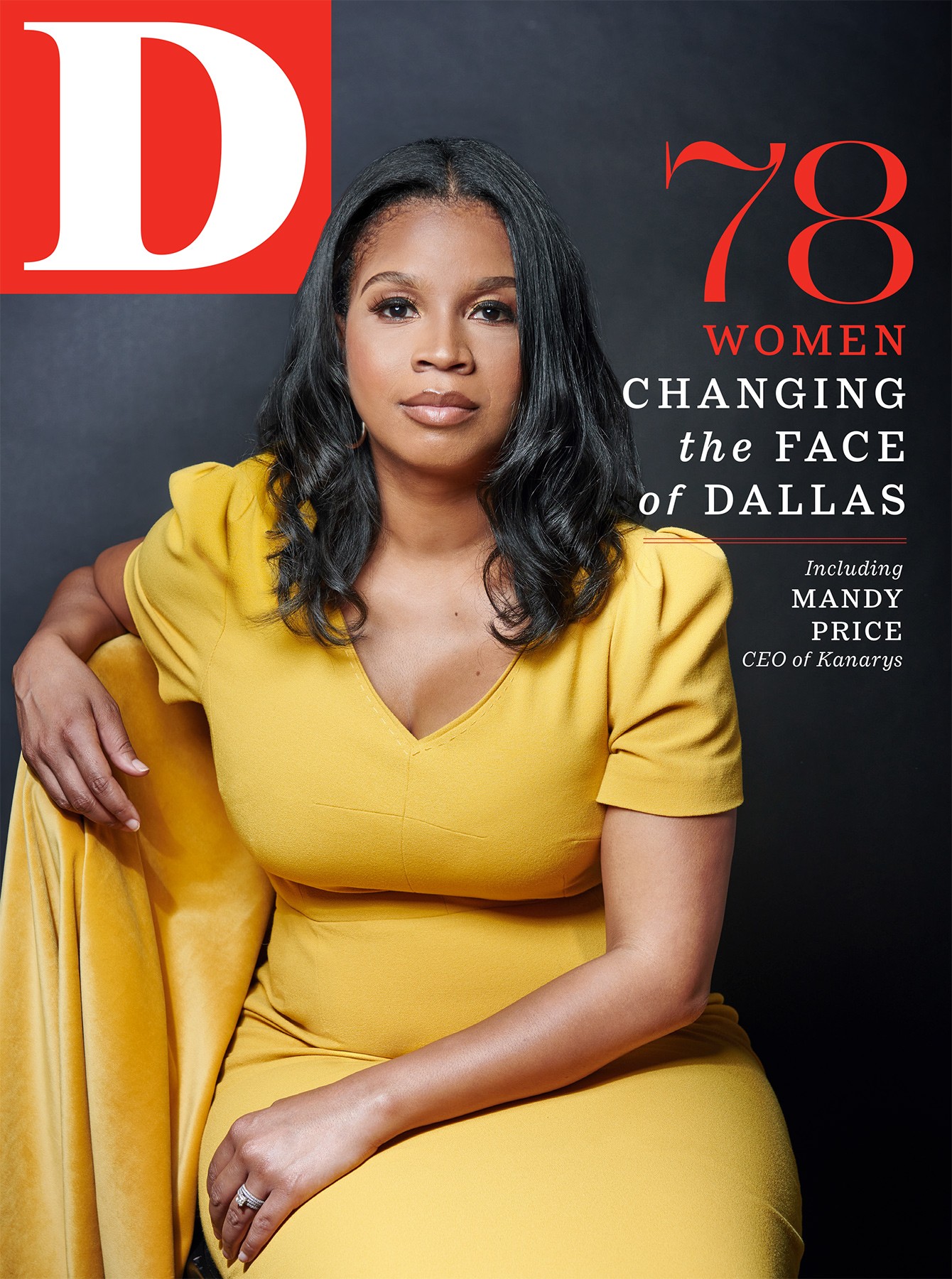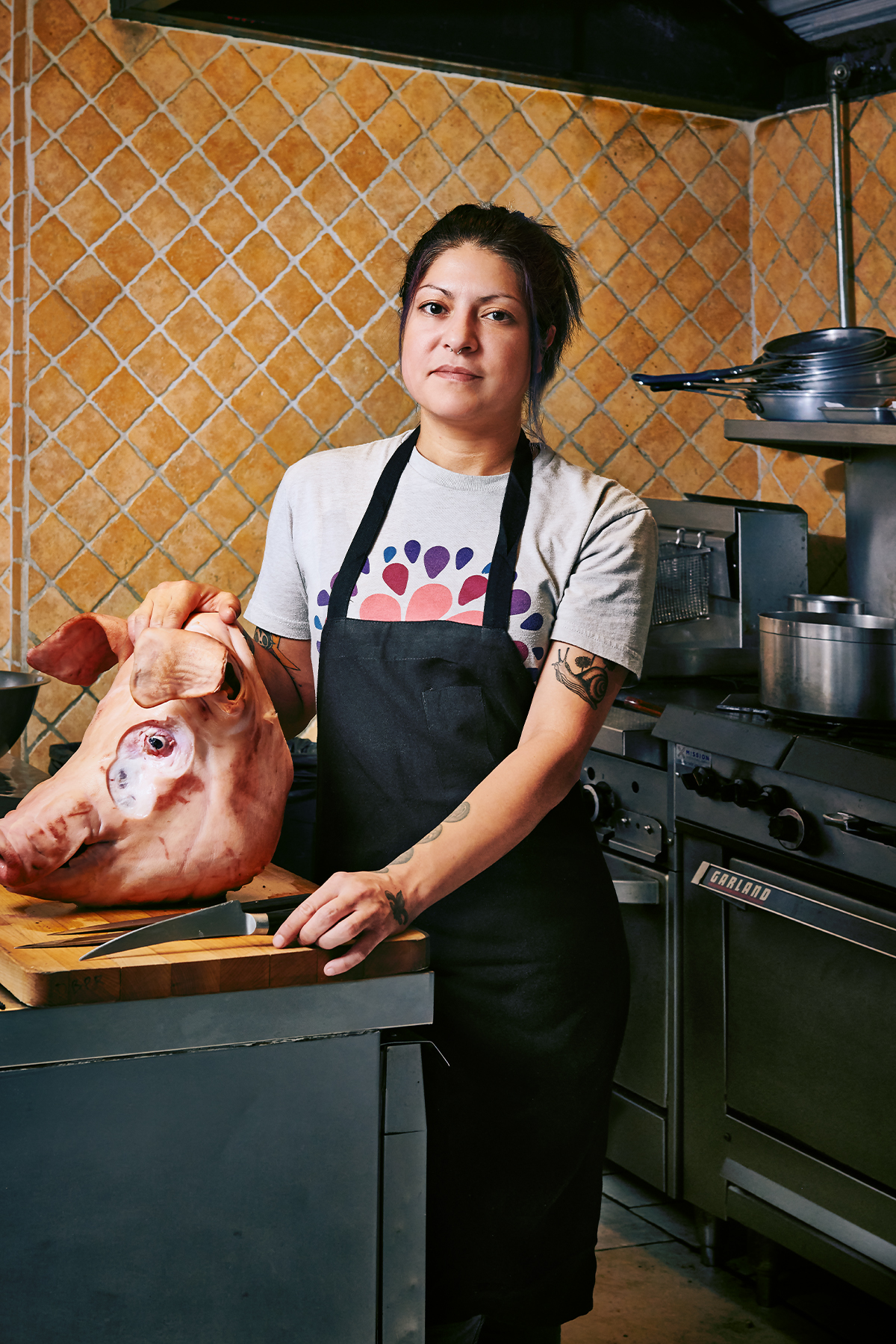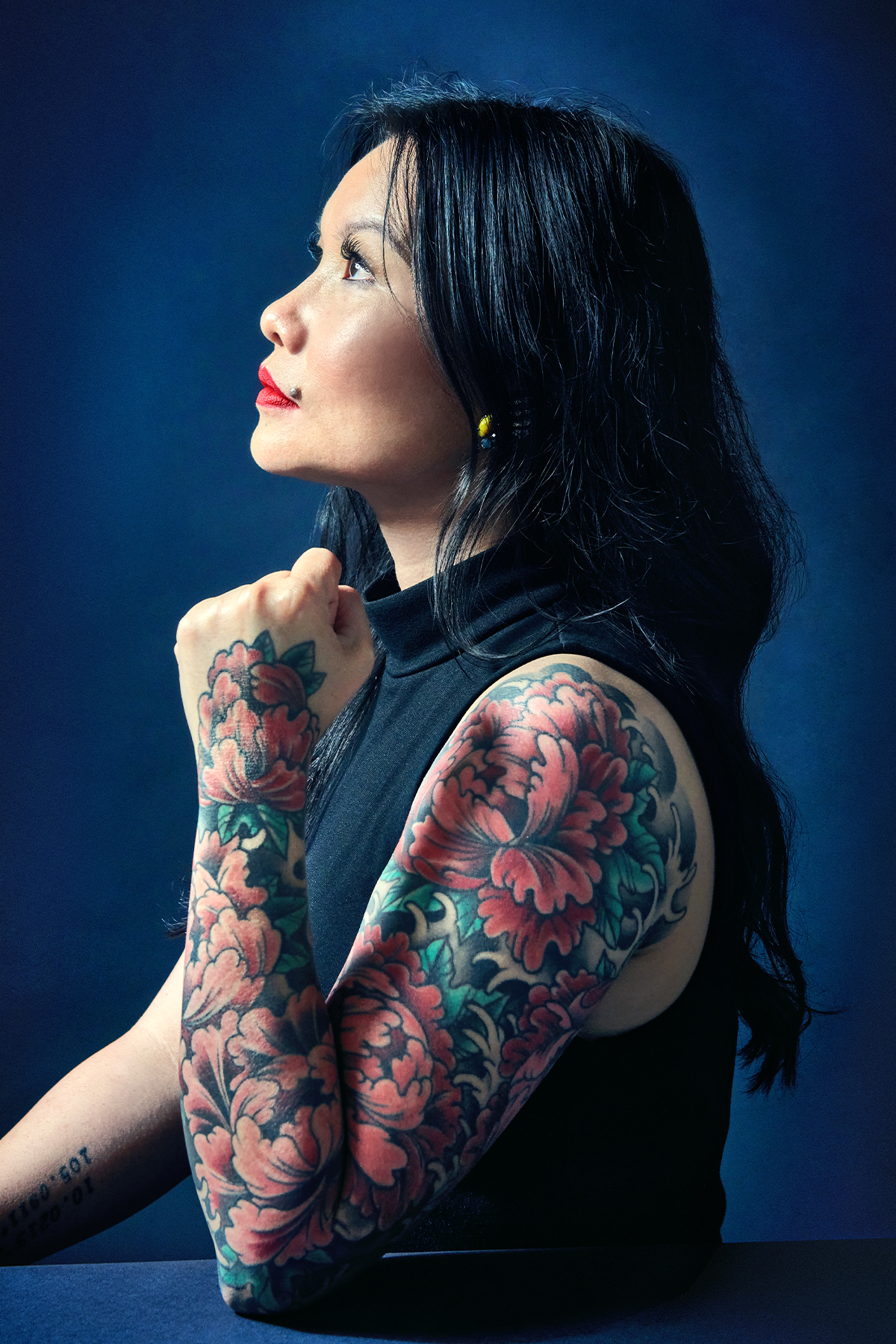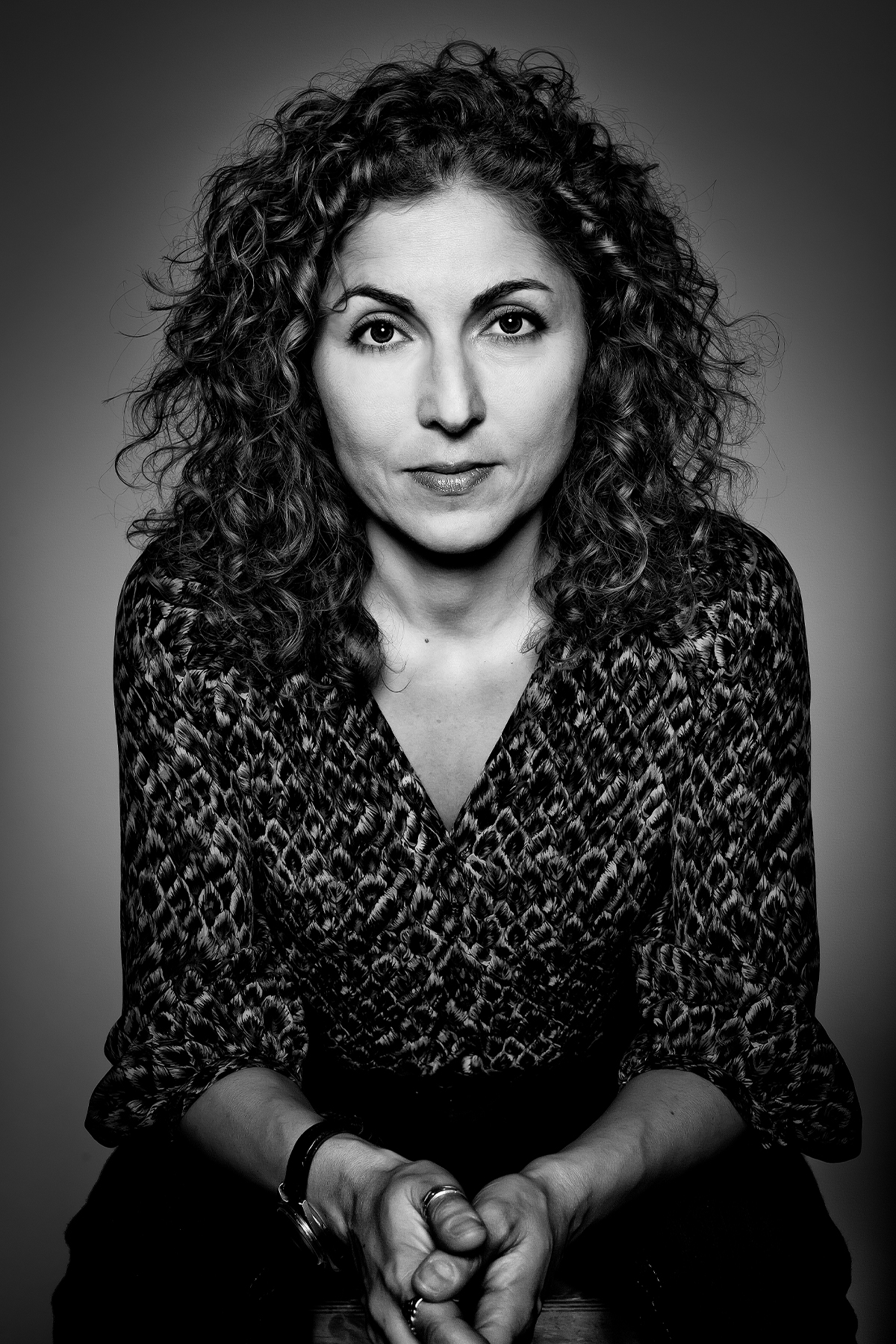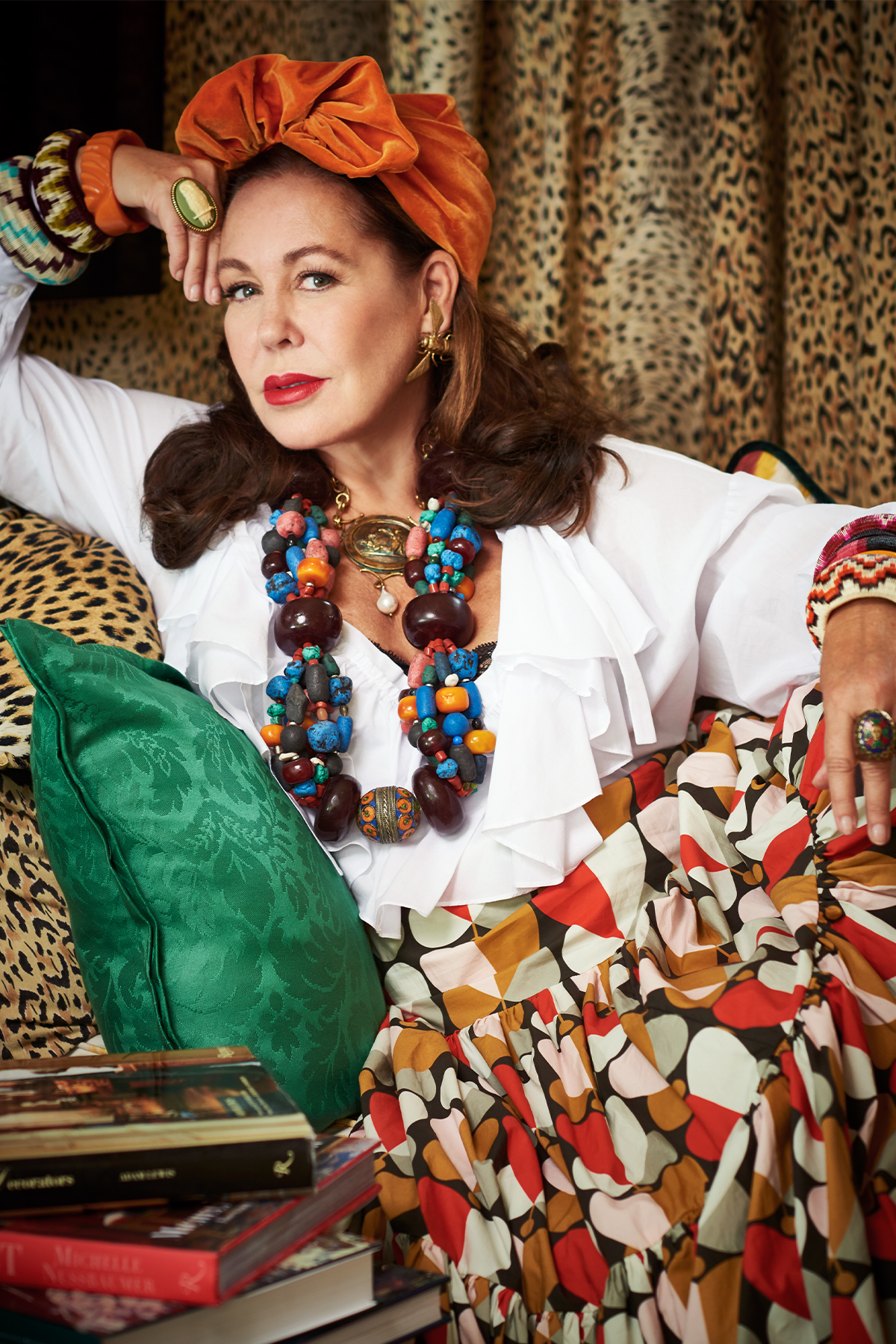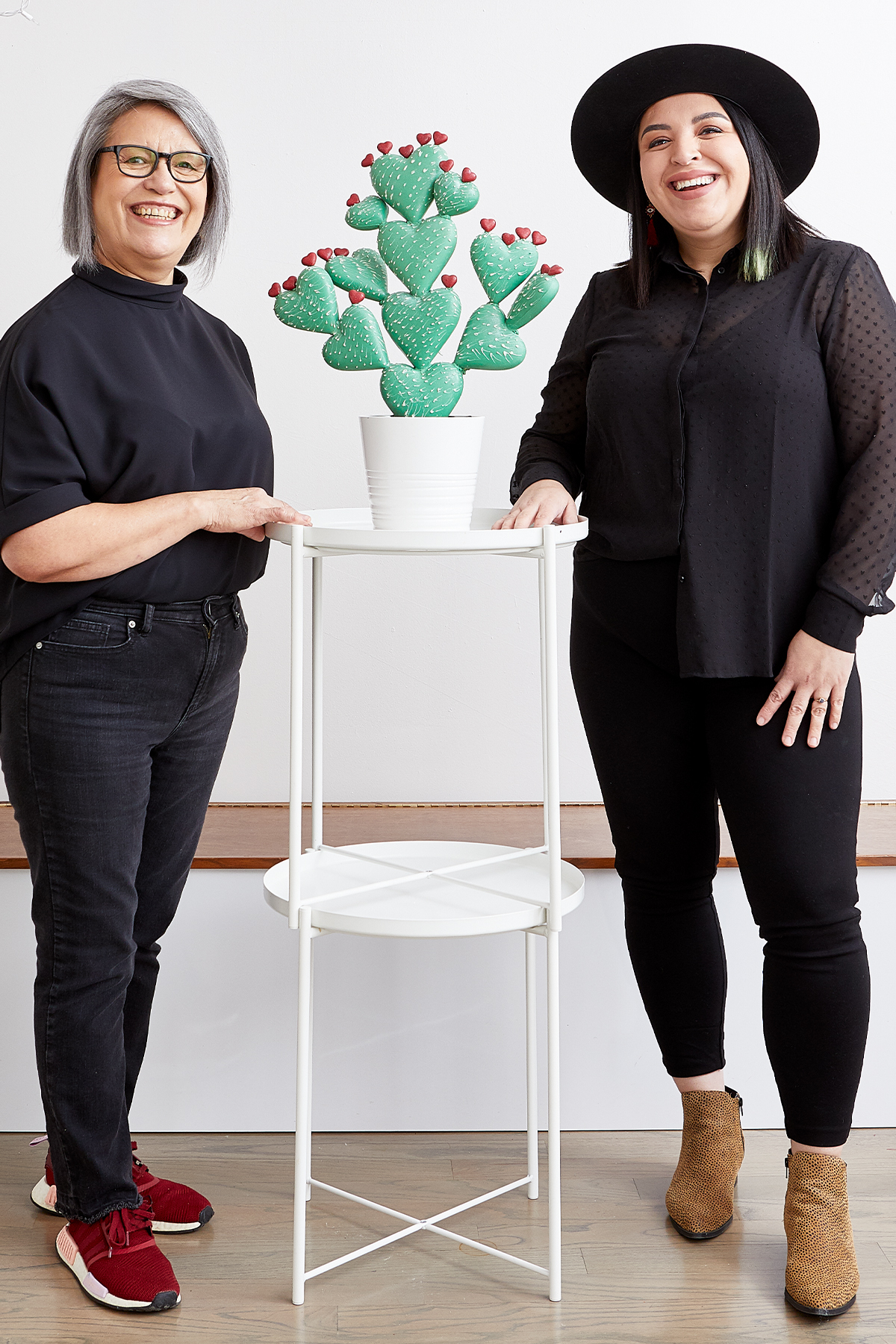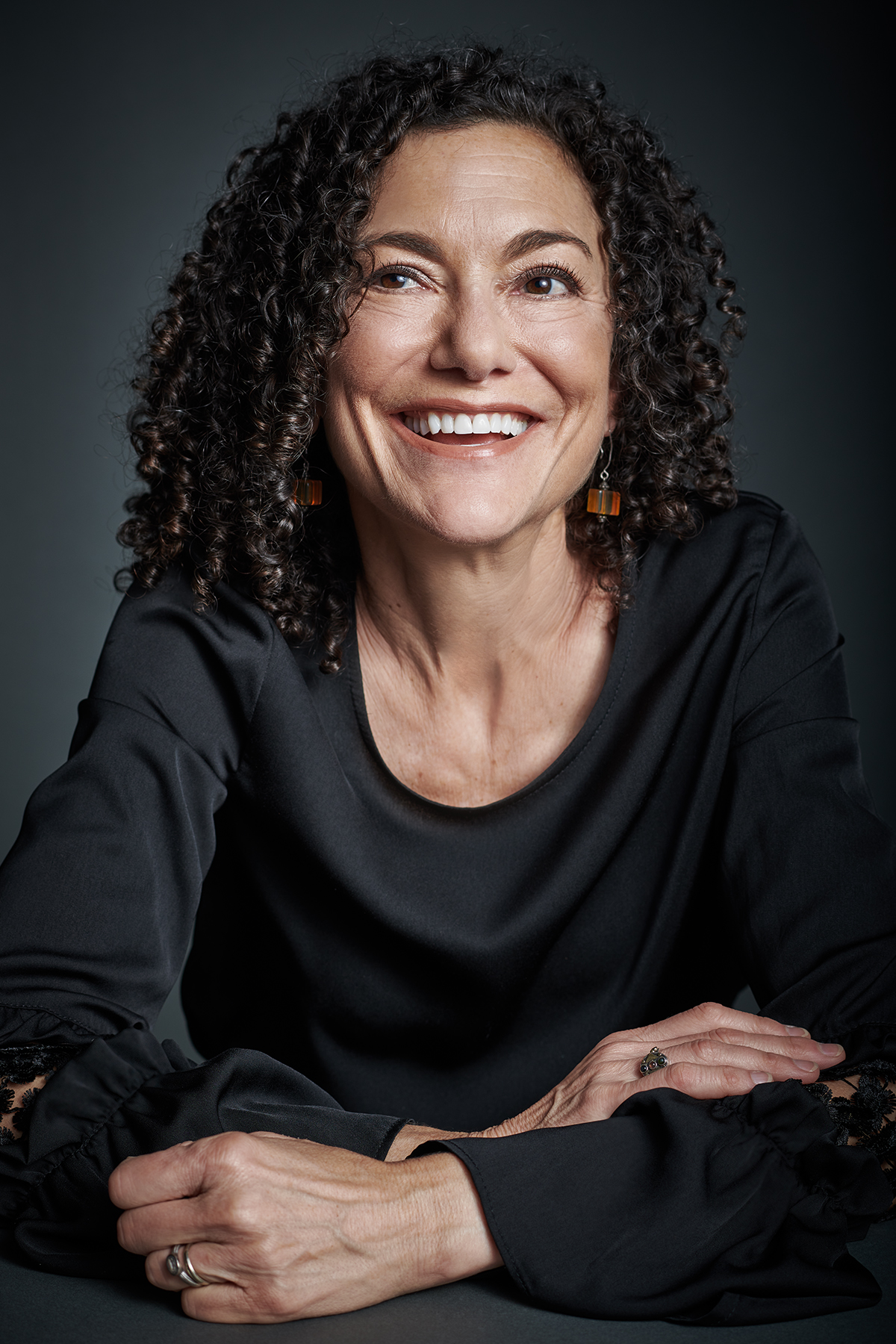Crafting a list of phenomenal women is a fraught task. We started out wanting 100; we had room for 50 but couldn’t settle on fewer than 78. An argument was made that a gendered list was passé; the counter was that women still make 82 cents on the dollar and still carry the bulk of the child-care burden. Which makes our accomplishments, statistically speaking, all the more badass. So, without further ado, here they are: a select few of the many women who make Dallas great. —Kathy Wise
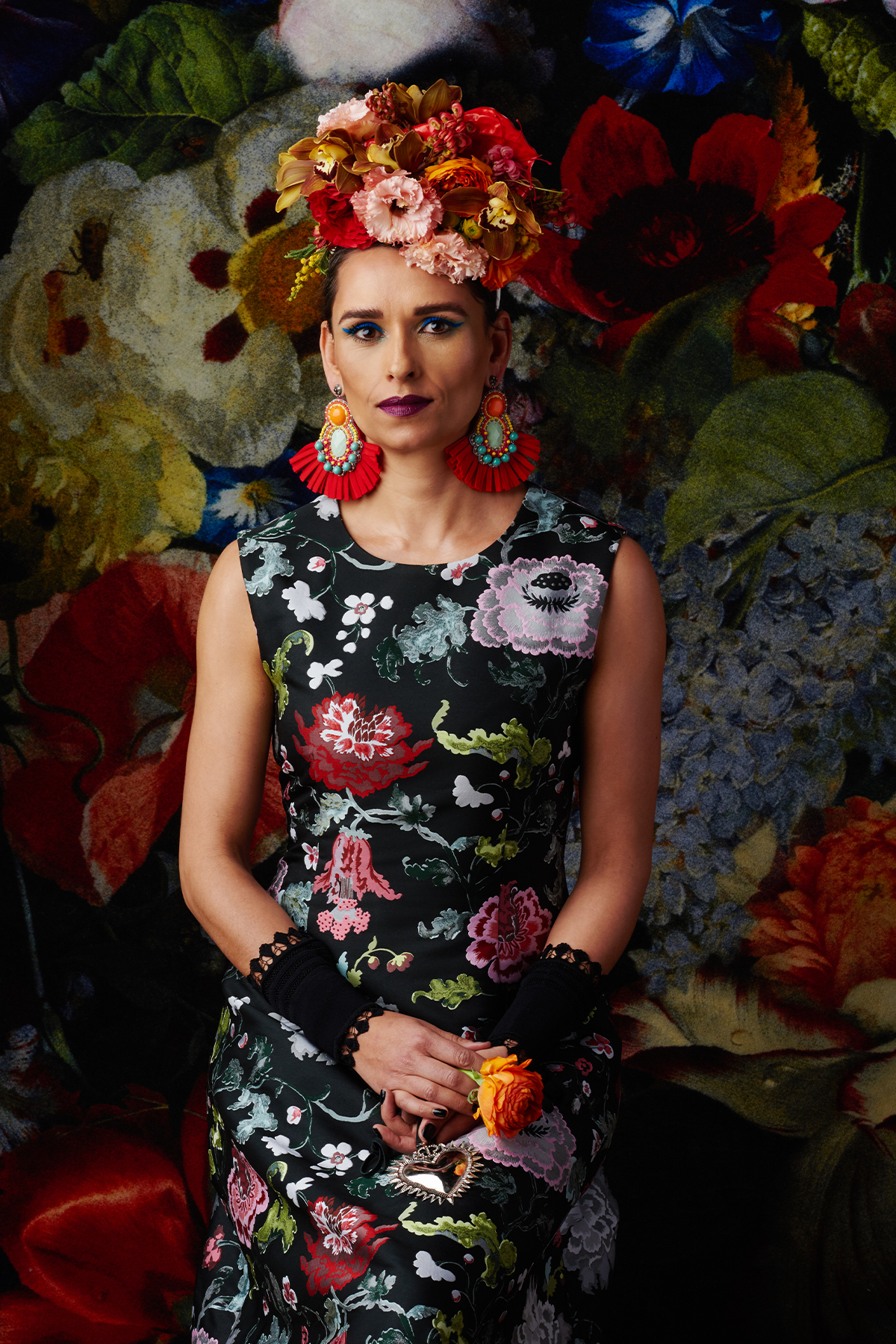
Regina Merson, 41
Founder, Reina Rebelde
As U.S. hospital capacity surged in 2020, Regina Merson, founder of Latina makeup line Reina Rebelde, realized her brand could no longer stick with the status quo. “I had struggled really intensely as a business owner knowing that one of the hardest-hit communities with COVID, it was going to be my core customer,” Merson says. Reina Rebelde’s social media soon became less about pushing lipstick and more of a community platform. The brand encouraged followers to “Quédate en casa!” and enlisted frontline workers to do Instagram Story takeovers so people could see what it was like to be a nurse in New York. For months, Merson pledged a portion of all Reina Rebelde revenue to relief efforts. In the wake of George Floyd’s death, she donated 25 percent of Brava lipstick proceeds for the remainder of the year to Black Lives Matter, explaining that she spent two years working on this fierce red, one that looked powerful on every skin tone.
Knowing her followers needed healthy distractions from lockdown anxieties, she invited more influencers to do makeup tutorials, sometimes donating their fees to One Fair Wage. “I think it revalidated what I have always felt,” Merson says, “that makeup and beauty are a point of connection and bonding between a lot of women.” Born in Guadalajara, Merson moved to Dallas at 8 years old. She graduated from Yale then University of Chicago Law before accepting a position at a corporate law firm in Dallas. In the high-stress world of bankruptcy law, Merson took comfort in beauty rituals. The dream of starting a makeup line that celebrated her Latina roots began to take shape. Layoffs at the firm gave Merson the freedom to launch Reina Rebelde (translation: “Rebel Queen”). The brand has been sold at Target and Walmart and is making inroads in India, where women have a similar preference for highly pigmented makeup hues. As it was for so many, the pandemic was personally devastating to Merson. Three family members died in circumstances accelerated by the shutdown. Yet one bright spot appeared in February of this year, as Merson took on a huge new role: mamá. —S. Holland Murphy
Charlotte Jones, 55
Executive vice president and chief brand officer, Dallas Cowboys
The National Medal of Honor Museum is set to open in Arlington in 2024, and, for that, we have Jones to thank. In 2019, she worked with the city to bring the museum to Texas. The museum and education center will recognize our country’s Medal of Honor recipients and include exhibits about racial and religious diversity in the military. — Sophie Kidd
Dr. Elba Garcia
Dallas County Commissioner, District 4
A dentist by trade and the first Latina ever to serve on the Dallas County Commissioners Court, Garcia has worked to make Dallas County government more transparent, fix the broken bail bond system, build and extend trails, reduce deferred maintenance, and champion a new animal cruelty unit. — Samar Warsi
Pamela Metzger, 55
Director, SMU’s Deason Criminal Justice Reform Center
As a kid, Pam Metzger wanted to be a muckraking journalist or a lawyer. Championing the underdog as a public defender felt like the perfect middle ground. The native New Yorker started on her home turf before taking a job at Tulane running the criminal law department. After Katrina hit and New Orleans’ criminal justice system collapsed, she was appointed to represent more than 8,000 people who were stuck in jail without lawyers or public defenders (her experience served as part of the inspiration for Melissa Leo’s character on the HBO drama Treme). In 2017, she came to Dallas to launch the Deason Criminal Justice Reform Center at SMU, the nation’s leading university-based research center focused on public defense and right to counsel, where, among other things, she has been studying racial inequity in the enforcement of low-level drug laws in Dallas County. “When someone says to you, ‘Here’s some money to do the thing that you’ve been trying to do your whole career, to really make an impact,’ you can’t say no,” she says. “It’s a dream job. Who wouldn’t want to do this work?” —K.W.
Who influenced you?
“Who influenced me most in criminal justice? You want the truth? My mother, who was not a lawyer. My mom was a social worker, but she grew up in the Bronx—poor, poor, poor. One bedroom for her whole family, first generation. Put herself through college in three years. All the money went to her brother because he was a boy, right? She wanted very badly to go to law school. Got into NYU and couldn’t afford it so went to work as an analyst at Bear Stearns and then went on and got her LSW. My mother was somebody who had no problem telling it like it is. If it’s the right thing, then why don’t you do it? That’s the end of the discussion. She also taught me that loving people is uncomfortable. I’ve loved almost all the clients I’ve had. Of the thousands of clients I’ve had, I can only think of three I didn’t love at some point or truly care for. I think my mother taught me that loving people broadly that way, the connection between people, is messy and uncomfortable, and that’s OK. A big part of criminal justice is being willing to be uncomfortable.”
Anastacia Quiñones-Pittman, 40
Executive chef, José
If it weren’t for Quiñones-Pittman, we would not have freshly ground, flavor-infused tortillas made lively with purées of chiles and eye-catching hot-pink beet, nor duck breast on a taco with local cherries, almond mole, and an almond tortilla. They exist alongside her gorgeous aguachiles and extraordinary mole. She pushed the boundaries, bringing light to—and helping to boldly define—an elegant modern Mexican cuisine in a city that long associated its flavors with Tex-Mex. — Eve Hill-Agnus
Jin-Ya Huang, 51
Founder, Break Bread, Break Borders
With her catering company and educational program Break Bread, Break Borders—which offers cuisines ranging from Bangladeshi to Syrian—Huang works to empower refugee women in the culinary world as well as connect them to industry professionals for mentorship and training. The cause was inspired by Huang’s late mother, Mei-Ying Huang, who was a chef, restaurateur, and community leader. — Dalila Thomas Brent
Anne Chow, 56
CEO, AT&T Business
My last meeting with Anne Chow feels like a lifetime ago. It was January 2020 and she had recently been named CEO of AT&T Business. The move was news because she was the first woman-of-color CEO in the company’s history. We sat together on the executive floor of AT&T’s downtown skyscraper, and Chow talked about her upbringing with Taiwanese immigrant parents who insisted she squeeze every last drop of opportunity from the American experience. I learned about her youth shuttling from her south New Jersey suburb to Lincoln Center, where she studied classical piano in Juilliard’s prestigious Pre-College division. She told me about her upward zigzag through 17 different roles at AT&T. I was amused by her obsession with motivational axioms (she readily quotes everyone from Louis Pasteur to Dumbledore) and her own “Chow-isms,” and I recall her desire to publish a book. Neither of us could have imagined, on that overcast winter morning, that Chow would soon be leading a worldwide staff of 30,000 from the confines of her Southlake home. No one expected that the book she was wrapping up with two co-authors, A Leader’s Guide to Unconscious Bias, would hold such heavy relevance upon its November 2020 release. Before any inkling of a pandemic, Chow chose to focus on community health during her 2020 campaign chairmanship for United Way of Metropolitan Dallas, a pillar more pertinent than ever (the nonprofit raised $66.7 million with Chow’s help this fiscal year, beating the goal by 78 percent). And Chow certainly did not anticipate the acts of violence against Asians in the land of the free. On a phone call this summer, she told me she has not felt fear, but outrage and hope. “I believe there will always be light that comes out of the darkest times,” Chow says. “And one thing that I feel so strongly about that has come out of these tragedies is this awareness, the unleashing of voices not only in the Black community or the Asian American community, but those of our allies and supporters and those who are striving to try to understand and learn. This is the opportunity we have, right? This is the opportunity to create higher-performing cultures, higher-performing teams and environments so we can make progress.” —S.H.M.
Misti Norris, 35
Chef-owner, Petra & the Beast
Before she found her way into cooking, Misti Norris was a competitive gymnast. That same quest for perfection, dexterity, and reliance on undergirding technique carried over to the realm where she would soar in her utterly unconventional, trailblazing way. She has received recognition among Esquire’s Best New Restaurants 2018 and Food & Wine’s Best New Chefs 2019, with multiple nods from the James Beard Foundation: Restaurant of the Year, Rising Star Chef, and Best Chef: Texas. At Petra & the Beast, in the converted 1930s gas station in East Dallas for which she used all her savings, she performs alchemy with foraged ingredients, twining mustang grapes, sunflowers, and magnolia petals into unusual constellations. A zero-waste ethos is not just lip service to a philosophy but a reality. Ferments add layers to dishes. And she loves to push new frontiers in meat curing, crafting charcuterie boards that work magic with koji spores to create flavors and textures that diners may never have experienced before. “I like to make people uncomfortable,” she says, “but in the best way.” —E.H.A.
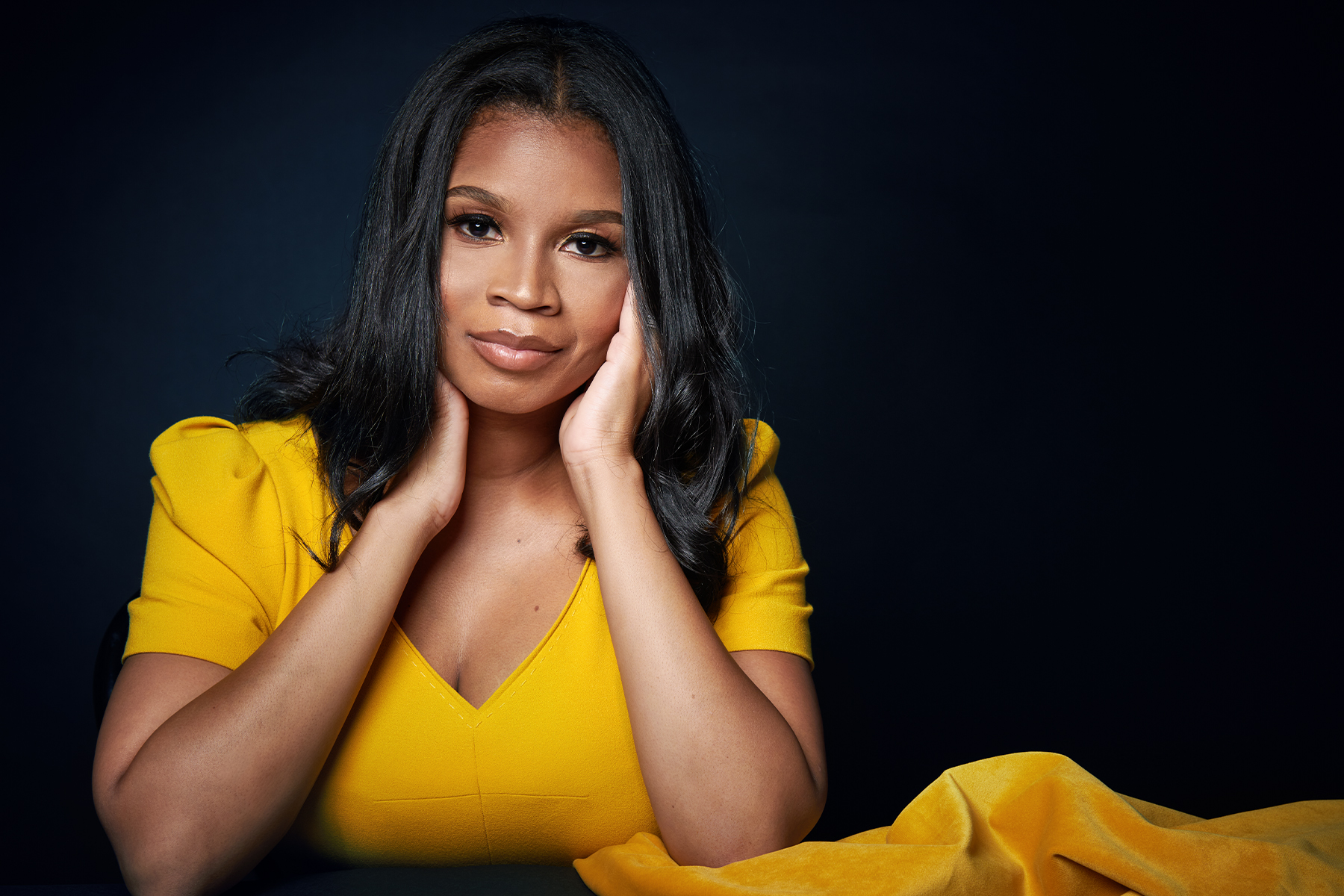
Mandy Price, 40
CEO, Kanarys
Mandy Price can’t pinpoint one specific moment that pushed her to leave her successful career as a private equity lawyer to launch Kanarys, a tech company that uses data and analysis to improve diversity, equity, and inclusion (DEI) in the workplace. It’s more like a lot of little moments, so many that she started to normalize the disparities.
There was the time a partner at her firm asked if she had gotten into Harvard Law “legitimately.” Another time, the head of corporate referred to her as the firm’s “diverse partner” in a client meeting. Price spoke with a woman at a Fortune 100 company who said she had created an “army” through the company’s mentorship program—teaching women how to dress, how to talk—but that it still wasn’t enough. Then, at a private equity conference, she heard people of color talking about how hard it was to get funding even if they demonstrated a higher return. That’s when Price realized these problems went beyond the legal industry. They were everywhere.
“I just walked away feeling like I don’t want to teach my children survival skills of how to succeed in these environments, to teach them how to navigate a broken system that we all know isn’t working,” Price says. “I want fundamental change within the way the workplace operates.”
I just walked away feeling like I don’t want to teach my children survival skills of how to succeed in these environments. I want fundamental change within the way the workplace operates.
Price launched Kanarys (as in, canaries in a coal mine) with Star Carter, a Harvard Law classmate, in 2018. The death of George Floyd and subsequent racial awakening sparked a newfound awareness in their mission, and in January, Kanarys announced it had received $3 million in a new round of seed funding. Locally, they have worked with the Mavericks, Neiman Marcus, KERA, and Yum! Brands.
Kanarys gathers data from more than 1,000 companies for benchmarking across industries and allows employees to anonymously answer 250 DEI-focused questions to paint a detailed picture of a business’s culture. To offer equitable strategies, they analyze everything from the language in job descriptions to the number of nursing rooms to the use of pronouns to pay procedures (e.g., salaries should be based on the job and experience, not on previous salary). Price argues that just as all companies have financial statements and a sales force, they should also have DEI initiatives.
“The issues may change,” she says. “It may not be gender and may not be race. It may be around parental status, age, religion, disability. All of these are things we measure on our platform. But I think that the challenge of ensuring we’re not creating in-groups and out-groups is something that will always remain.” —S.H.M.
Trisha Cunningham, 56
President and CEO, North Texas Food Bank
Under Cunningham’s leadership, in fiscal year 2020 the North Texas Food Bank provided a record-breaking 96.9 million meals to kids, seniors, and families in need and distributed more than 34 million pounds of fresh produce. — S.W.
Xiaolin Lu, 59
R&D manager, Texas Instruments Kilby Lab
Lu doesn’t want to make waves. As the technical lead and an R&D manager in the Texas Instruments Kilby Lab, she has revolutionized the ways electronic systems communicate, figuring out how to reduce digital noise vibrations, increase speed and accuracy, and use less energy. Your smart home has her to thank. — Ruth Anne Emerson
Amy Lewis Hofland, 49
Senior director, Crow Museum of Asian Art
The sense of peace that Amy Lewis Hofland imparts upon meeting is fitting. The former Armstrong Elementary art teacher is now responsible for the Crow Museum’s inception as the first “wellness museum” in the United States, with meditation and ayurvedic sessions offered on-site. In addition, following the collection’s transfer from the Crow family to UTD in 2019, Hofland has been working on a second museum building that will sit on the university’s Richardson campus as part of the school’s New Dimensions Campaign. The goal is to create an entire cultural district on the technologically focused campus, including an art museum, a performance hall, and other cultural spaces. Hofland is working with Los Angeles-based architectural firm Morphosis, which designed the Perot Museum of Nature and Science, and expects the cultural district to be completed by 2025. “How amazing it will be for these freshmen who arrive, especially international students, to have a third space,” Hofland says. “There are dorms and classrooms, and now there will be a museum as a place of learning in connection.” —R.A.E.
Jan Showers, 79
President and Founder, Jan Showers & Associates
Long before she was named to Architectural Digest’s list of the top 100 interior designers in the world or had her elegant residential designs featured in Veranda and Elle Decor, Jan Showers was a little girl in Hillsboro, Texas, poring over the many shelter magazines to which her mother subscribed. “When they’d come, I was always so excited about it,” she says. “I always thought of them as a window to what was going on everywhere else.” But the route from small-town kid enchanted by beautiful rooms in glossy magazines to published interior designer was a lengthy one. First came a business degree from TCU and a marriage to her college sweetheart, then the birth of two daughters. It wasn’t until Showers was in her mid-30s, in fact, that she started building a full-time design business. “When I discovered that this is really what I wanted to do, that was a huge thing for me,” she says. “I’m so glad that I realized it.”
When I discovered that this is really what I wanted to do, that was a huge thing for me.
The long list of people also thrilled about her career-making realization include the copious clients whose homes she has designed (she needs a warehouse to store all of her project binders), the readers of her three coffee table books (the most recent, Glamorous Living, came out in 2020), and the frequent shoppers of her Design District showroom (filled with furnishings from her eponymous collection and vintage European pieces, the spot celebrates 25 years in business this fall). But Showers’ most noteworthy accomplishment might be changing the way Dallas views traditional design. On a buying trip to Paris in 1996, she fell fast and hard for the light woods and sleek silhouettes of French furnishings from the ’30s, ’40s, and ’50s. “Things just looked younger,” she says, “and nobody [here] was selling it.” The other antiques shops in town still dealt mainly in the “oldy-moldy”—what Showers calls the bulky, dark brown pieces adored by so many back then. So no one was more surprised than Showers when her Paris finds were the first pieces to get scooped up from her showroom floor. “They just flew out the window, and I had to go back—I literally had to go back to Paris,” she says. “From then on, that’s what I focused on because that’s what I really loved.” —Rhonda Reinhart
Reyna Duong, 44
Chef-owner, Sandwich Hag
Yes, the bánh mì are extraordinary. The crackling baguettes with roasted garlic aioli contributed to Bon Appetit’s naming Dallas the Best Restaurant City of 2019. But the other reason Reyna Duong is known in these parts is that she uses her walk-up restaurant in the Cedars as a billboard, platform, and megaphone to be a fierce advocate in the community. Duong is vocal about educating through consumption. She consistently uses the Vietnamese names for dishes and ingredients, always with the diacritical glyphs that indicate tone, whether in cà phê or bánh mì or the cà ri of her coconut milk-imbued curry. In an ideal world, she fervently wishes that this could be part of a beautiful culinary cross-pollinated awareness: “Eat it, respect it, love it.”
She earned a spot last fall in the latest edition of the Rebel Girls children’s anthology Good Night Stories for Rebel Girls: 100 Immigrant Women Who Changed the World—a book that includes Carmen Miranda, Diane Von Fürstenberg, Josephine Baker, and Hannah Arendt—for her dedication to promoting industry workers’ rights and the hiring of people of all abilities. The mission centers on her brother Sang, who has Down syndrome and works at Sandwich Hag. The focus has burgeoned into more broadly diverse hiring and festivals, one of which raises funds on World Down Syndrome Day. Recently, Duong expanded her coffee program, buying beans from New York- and Austin-based companies that source ethically from Vietnam, shining light on the world’s second-largest coffee producer. “What’s going on today? What needs my attention?” she asks. “I should be the first to be constantly aware of what’s going on in the country, in our city.” —E.H.A.
Nancy Flores, 55
Executive vice president, CIO & CTO, McKesson
When the pandemic hit, Flores saw an opportunity to use her new position at the Irving-based medical supplier to leverage technology and transform distribution systems. — R.A.E.
Donna Wilhelm, 78
Arts philanthropist
From her work as a long-time trustee of KERA to being one of the originating donors of SMU’s new DataArts program, Wilhelm is intent on proving that art isn’t a luxury but an essential community asset. — R.A.E.
Jo Giudice, 58
Director, Dallas Public Library
Whether she’s working on programming or giving input on the design of a new facility, Giudice focuses on promoting equity and access to the invaluable services offered by Dallas’ public libraries. — S.K.
Anousheh Ansari, 54
Executive Chairwoman, Prodea Systems
In addition to being the first female private space explorer, the first astronaut of Iranian descent, and the first Muslim woman in space, Anousheh Ansari and her family’s $10 million Ansari XPRIZE helped launch the private space tourism industry as we know it. Up next: a $100 million carbon removal competition in partnership with Elon Musk. — S.W.
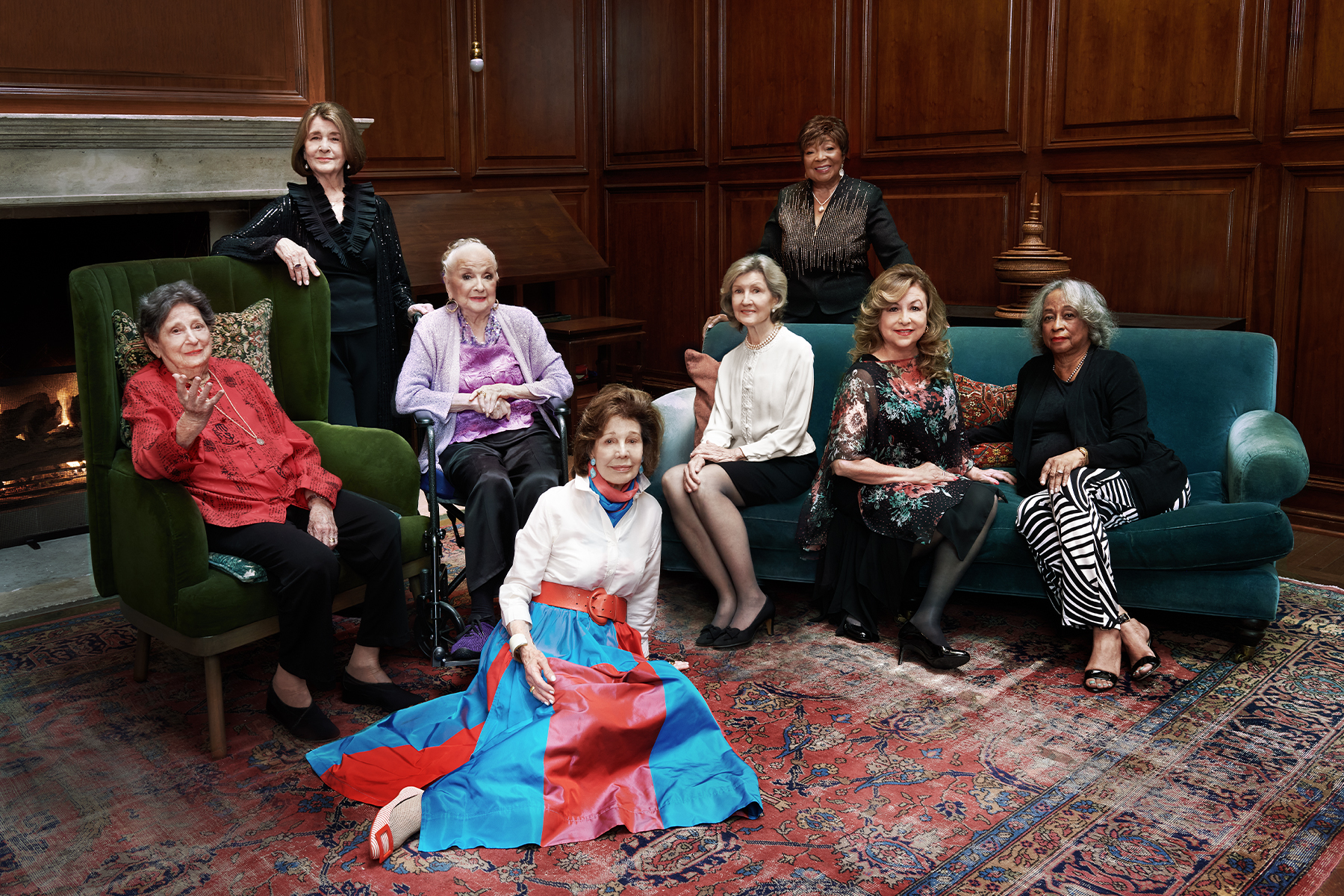
The Grande Dames
These 17 women of influence have helped shape our city and the world in dramatic ways.
Dr. Gail Griffin Thomas, 83
Former president and CEO of the Trinity Trust; helped raise $105 million for projects in the river’s corridor.
Adlene Harrison, 97
First female mayor of Dallas, first Jewish woman to serve as mayor of a major U.S. city, and first chair of the DART board. (Ed. Note: Harrison died on February 22, 2022. You can read our obituary here.)
Anita Nanez Martinez, 95
First Mexican American member of Dallas City Council, West Dallas community activist, and founder of Ballet Folklorico.
Lee Brooks Cullum, 82
Award-winning journalist, former editor of D Magazine, and current host and commentator for KERA-TV and radio.
Eddie Bernice Johnson, 85
The first nurse to be elected to the U.S. Congress; currently serving her 15th term in the U.S. House of Representatives.
Regina Montoya, 67
Attorney, Latinx advocate, and former director of the Office of Intergovernmental Affairs for President Clinton.
Kay Bailey Hutchison, 78
The first female U.S. senator from Texas, former gubernatorial candidate and NATO ambassador, and current convention center namesake.
Mollie Finch Belt, 78
Award-winning publisher of the Dallas Examiner weekly newspaper; HIV/AIDS awareness and prevention advocate.
Not pictured:
Allie Beth Allman, 81
Founder of Allie Beth Allman & Associates; historic home preservation advocate.
Lucy Crow Billingsley, 67
Real estate developer and co-founder of the Billingsley Company; developed One Arts Plaza.
Mary McDermott Cook, 68
President of the Eugene McDermott Foundation; founding member of the Trinity River Audubon Center.
Paige Flink, 65
Former CEO of The Family Place; helped grow the nonprofit into the largest provider of domestic violence services in Texas.
Lyda Hill, 78
Chair of LH Capital and founder of Lyda Hill Philanthropies; helped fund the Perot Museum of Nature and Science.
Dr. Nancy Cain Marcus, 70
Former ambassador to the United Nations; serves on the George W. Bush Institute’s Human Freedom Advisory Council.
Nancy Arnole Nasher, 67
Co-owner and operator of NorthPark Center; serves on the board of the Nasher Sculpture Center.
Hon. Jeanne L. Phillips, 67
Senior vice president at Hunt Consolidated; served as U.S. ambassador to the OECD in Paris.
Evelyn “Deedie” Potter Rose, 80
Added a $400 million trove of art to the DMA’s collection; helped fund the Arts District.
Helen Hobbs, 69
Director of the Eugene McDermott Center for Human Growth and Development, UT Southwestern
Dr. Hobbs thought she’d be a full-time physician; instead, her mentors inspired her to go into research, and the geneticist has never looked back. Alongside her research partner, Hobbs has successfully identified the two key genetic susceptibility factors for fatty liver disease, leading to novel treatments for high cholesterol. — R.A.E.
Satou Sabally, 23
Forward, Dallas Wings
After joining the Dallas Wings as the No. 2 draft pick in 2020, the former Oregon Duck put her activism at the forefront. As the youngest member of the Social Justice Council of the Women’s National Basketball Players Association—and the daughter of a Gambian father and German mother—Sabally brings a unique perspective to racial injustice both nationally and globally. — D.T.B.
Matrice Ellis-Kirk, 60
CEO, Ellis Kirk Group
In April, Ellis-Kirk took her decades of experience in the executive search industry and launched her own firm. But the busy CEO still finds time to advocate for the arts. The founding member of the AT&T Performing Arts Center’s board of directors spent five years as board chair, a tenure that included expanding diversity at ATTPAC and positioning it for a more financially stable future.
Krys Boyd, 50
Host and managing editor, Think
Krys Boyd makes Dallas smarter. Without Boyd, would I have ever known that our brains process curse words differently from other language? Probably not. Almost certainly I wouldn’t have known that a mother’s voice travels down her skeleton and reaches her baby in utero through a process called bone conduction. These types of illuminating tidbits pop up in conversation on a daily basis on Think, the thought-provoking national radio show she has hosted on KERA 90.1 for 15 years. Listeners are treated to such informative morsels because of the wide-ranging, news-making guests Boyd invites to the program, from scientists, politicians, actors, and authors to notable figures such as Desmond Tutu, Jesse Jackson, Madeleine Albright, and Annie Leibovitz. But it’s also because of Boyd’s endless curiosity; the exhaustive research she does before each interview; the thoughtful, well-informed questions she asks each subject; and the fact that she actually listens to her guests’ answers. For these reasons, Boyd is easily the best interviewer in Dallas—and her reach is growing. A few years ago, Think began broadcasting on stations throughout Texas. Today it airs live on more than 150 stations across the country and can be heard on demand via the Think podcast, where it receives more than 250,000 downloads every month. You know what that means, right? Boyd is now making America smarter. —R.R.
Cristina Lynch, 33
Founder, Mi Golondrina
Lynch developed a strong sense of cultural identity through her mother’s adherence to her native Mexican art and culture, as well as through trips to her grandfather’s ranch house in Mexico. There, she would watch golondrinas, or sparrows, nesting in the eaves of the home. Those birds would be the spark for Mi Golondrina, her Mexican-inspired clothing line for women and children housed in a storefront on Mockingbird Lane.
In addition to paying female artisans fair wages, Lynch works collaboratively with them on new designs.
The apparel, featuring colorful embroidery styles developed two centuries ago in Mexico, is produced by more than 600 work-from-home artisans located in and around Oaxaca. In addition to paying these women fair wages, Lynch works collaboratively with them on new designs to ensure that their techniques and skills are employed innovatively and authentically. —Alex Temblador
Michelle Nussbaumer, 62
Owner and lead designer, Ceylon et Cie
Twenty-five years ago, designer Michelle Nussbaumer returned to Dallas and, essentially, started over. The sixth-generation Texan had left the city a decade earlier as a fresh SMU grad after falling in love with a Swiss movie producer. She jetted off to Rome with her new husband, then to Los Angeles. In those years, the couple welcomed four children, and Nussbaumer discovered that her studies in theatrical set design translated to dramatically layered interiors. She opened an antiques shop in L.A. with friends and worked on multimillion-dollar projects with high-profile clients such as Sharon Stone.
Dallas provided Nussbaumer a comfortable locale to raise her large brood, but upon that 1996 arrival, she was struck by the city’s attraction to all-pale palettes and Ralph Lauren everything. And while it didn’t take long for her to become a fixture in the society pages, many underestimated her talents. “Literally, people were like, ‘Oh, I heard you were a designer. Can you help me do the dust ruffle on my bed?’ ” she recalls. It’s odd to think of Nussbaumer having a humbling moment, now that she’s a globally known designer on Architectural Digest’s coveted AD100 list; the author of Wanderlust via Rizzoli, with another book on the way; a sought-after collaborator for special collections; and one of the Design District pioneers who helped turn a scrappy stretch of nudie bars and bail bond shops into a destination. In fact, our interview for this article had to be bumped twice because she was stuck on a call with an architect in Paris with whom she is building a royal estate in the Middle East. It’s precisely this unapologetic worldliness and adventurous spirit that make Nussbaumer a distinctive figure in Dallas. With her treasure-filled Dragon Street showroom, Ceylon et Cie, Nussbaumer acts as our aesthetic conduit to an entire planet of beauty, antiquity, and mystery. “I appreciate diversity of the world and seeing ourselves in other cultures and other people,” Nussbaumer says. “And that’s really what I try to do with my work. If you can’t see yourself in other people, then you really can never grow.” —S.H.M.
Mara Richards Bim, 46
Founder, Cry Havoc Theater Company
After years working in New York’s theater scene, Bim returned to Dallas and founded Cry Havoc, a youth theater troupe that immediately began producing some of the most engaging and challenging theater work in Dallas, regardless of age, tackling issues from the border crisis to gun violence.
Nycole Ray
Artistic director, DBDT: Encore!
In Ray’s hands, Dallas Black Dance Theatre’s horizons seem to have no bounds. During the pandemic, the dancer and choreographer utilized outdoor locations and historic indoor spaces and taught herself filmmaking in order to capture breathtaking performances that screened virtually.
Jennifer Scripps, 43
Director, City of Dallas Office of Arts and Culture
To create a more culturally vibrant Dallas, Scripps is providing support to artists, improving communication with audiences, and increasing accessibility for everyone. Most recently, she helped spearhead the new Dallas Poet Laureate initiative, which aims to bring more poetry to more parts of Dallas.
Nancy Bernardino, 42
Monica Lira Bravo, 40
Executive director for single-gender schools, DISD and Immigration attorney, Lira Bravo Law
Sisters Nancy Bernardino and Monica Lira Bravo are both, in their respective fields, transforming Dallas. The Hockaday alumnae attended SMU, but their paths forked from there. Bernardino is reshaping the way we think about educating the city’s young girls. She went from being a bilingual teacher to a principal to co-founding Solar Preparatory School for Girls in 2016. A part of Solar Prep’s inclusive model ensures student population makeup is evenly split between lower and middle-to-higher socioeconomic backgrounds. “Because when I designed the school, it was to give little girls like me an opportunity,” she says. Now she guides six principals of single-gender schools doing the same. Meanwhile, for the last decade, Bravo’s law firm has helped countless families, much like the one in which she and Bernardino were raised, navigate turbulent immigration legislation that has fluctuated with every administration shift. “Growing up in an immigrant family,” she says, “you see the struggles they go through.” —Rosin Saez
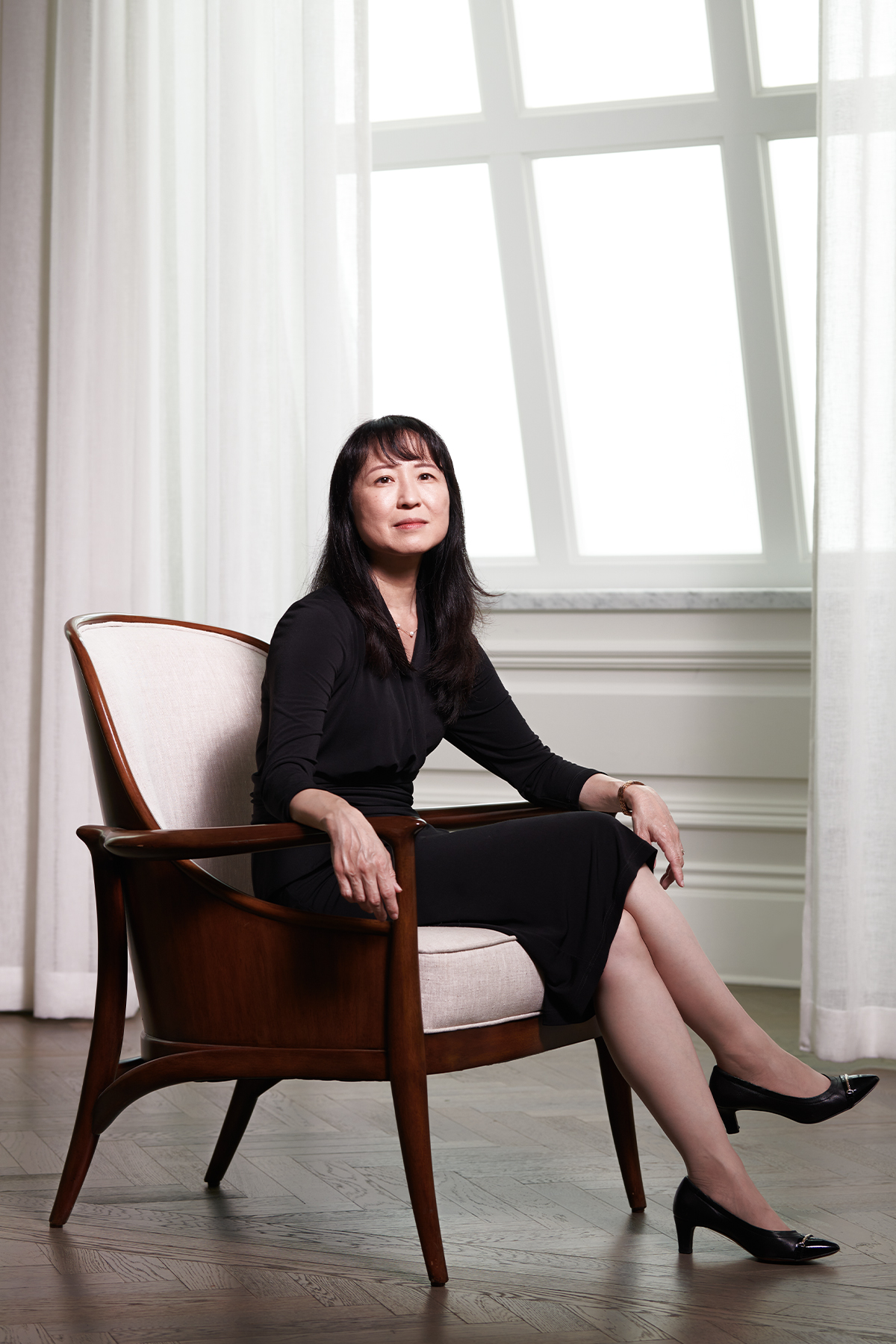
Dr. Wendy Chung, 50
Chief epidemiologist, Dallas County Department of Health and Human Services
I had heard Dr. Wendy Chung’s name repeatedly over the past year from medical professionals who spoke it reverently, crediting her with being the quiet force behind Dallas County’s response to the COVID-19 pandemic. But she had granted few interviews; the last substantial one was with Vanity Fair in 2015, for a piece about how, as Dallas County’s chief epidemiologist, she helped identify and stop the Ebola crisis here. When I finally catch her on the phone on an early Saturday morning break between work and family, I ask her what made her wade into the murky waters of infectious diseases. She says she was in the middle of her master’s program in public health when her brother died of leukemia; a year later she applied to medical school.
When her daughters were toddlers, she applied for a position with Dallas County Health and Human Services, looking for—irony of ironies—more regular hours than her pediatric practice. She’s now been there for 14 years and is responsible for overseeing the county’s response to everything from vaccine-preventable diseases (measles, mumps, rubella) and vector-borne diseases (West Nile, Zika, dengue) to respiratory illnesses (influenza, H1N1, COVID-19) and viral hemorrhagic fevers (Ebola, yellow fever). The stuff of nightmares. She and her team started working overtime back in January 2020, as they began monitoring travelers from China and South Korea, long before the first cases of COVID-19 were identified here. Chung has been hard at work ever since, heading up the statewide task force as well. “If there’s anything we need to learn,” she says of the latest in a long line of health crises she’s faced, “it’s that we must always approach the future with incredible humility.” —K.W.
What inspires Dr. Wendy Chung:
“There’s a quote that I like from Ernest Hemingway in A Farewell to Arms. ‘The world breaks everyone and afterward many are strong at the broken places’—every one of these crises, it breaks us. There are terrible tragedies. There are deaths. And that’s what makes these incidents significant. There’s some significant impact that has the potential to be scarring if you don’t let it actually make you stronger.
“So one of the things that I say to young professionals is that sometimes, as difficult as the actual crisis seems, the more difficult part is after the crisis, when you need to try to implement good changes. It isn’t enough just to move on to the next crisis; you must sift through the ashes of what just happened. To have us be stronger at the broken places in the future, that takes another level of determination and strength and discernment.”
“One of them, who was overseeing our long-term care facility outbreaks, came to me in tears saying, ‘I have trouble sleeping at night because I can’t stand all these deaths that are happening.’ I appreciate deeply the privilege of working with people who care so much, and I love them dearly. I really do.
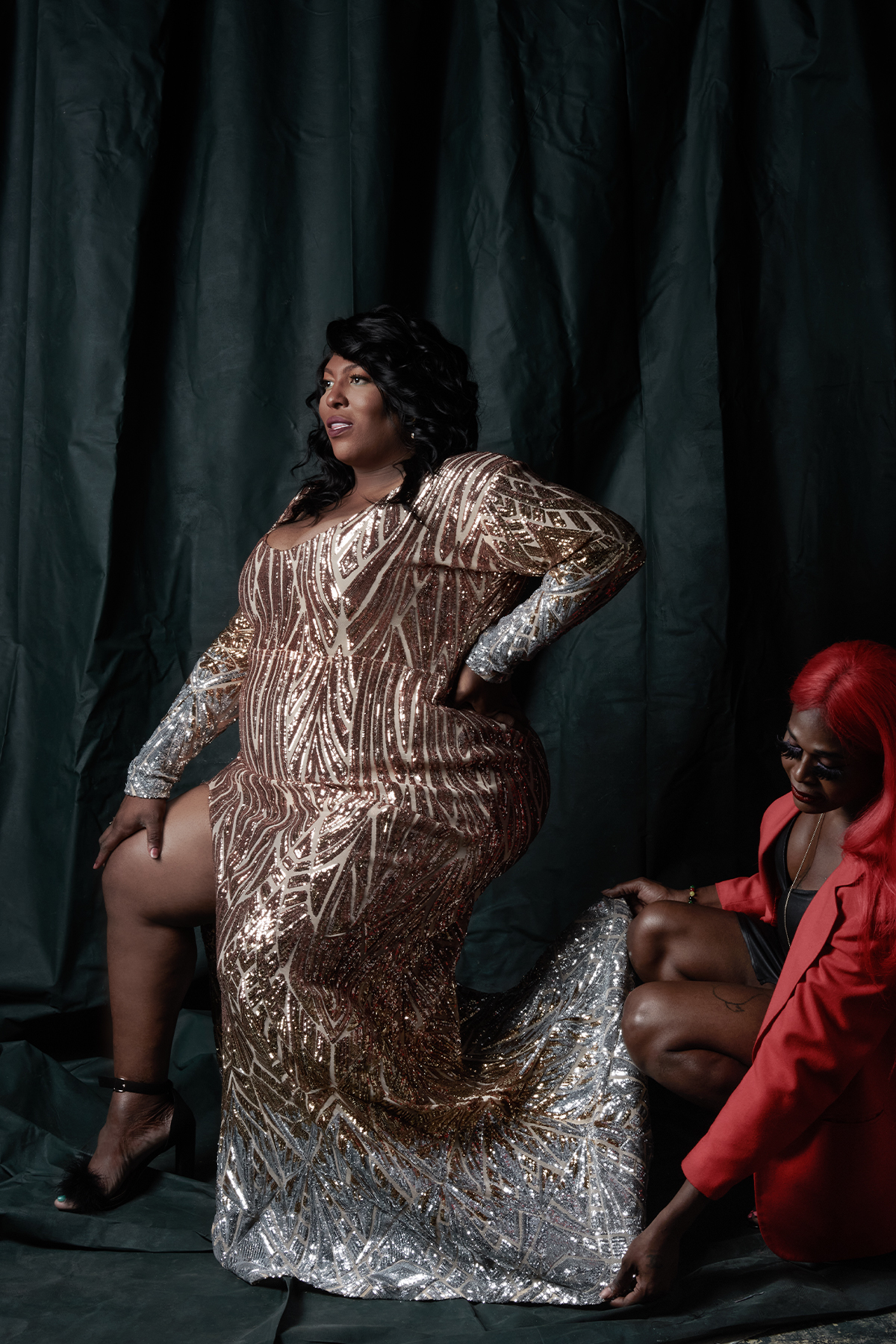
Robyn “Pocahontas” Crowe
Founder, House of Rebirth
At the age of 17, Crowe came out as trans. The founder of House of Rebirth, a Black trans-led service organization, says the lessons and experiences of her past guide the organization’s mission to enhance the lives of Black trans women. She educates clients about the importance of counseling and mental health, the ins and outs of hormone therapy and HIV prevention, and how to make your way without fear as a trans woman in a cisgendered society. The organization’s five-year plan includes a drop-in center for trans youths, long-term housing initiatives for adults, and partnering with related nonprofits and service providers for greater access to resources. On her podcast, The TransFusion Radio Show, she’s creating programming that speaks to the lived experiences of trans women of color and “most other trans folks,” she says. She hopes to extend her ministry to gender-nonconforming people and Black trans men, but she believes her true calling is to transform the lives of women like her by decoding the transgender experience. “No longer are we only doing sex work,” she says. “We’re going into corporate offices.” —Taylor Crumpton
Joy Bollinger, 42
Artistic director, Bruce Wood Dance
As one of the three women who carried on Bruce Wood’s legacy after his death, Bollinger has added the most to the company’s repertoire. Her choreography, which is highly cerebral and intuitive, brings out a mesmerizing emotiveness.
Tanya Eiserer, 50
Investigative reporter, WFAA
The five-time Emmy-award winning reporter has covered stories on everything from a rape victim’s quest for justice to custodial deaths in Texas prisons. Eiserer kept us glued to our screens for her minute-by-minute coverage and thoughtful analysis of the Amber Guyger trial.
Kourtny Garrett
Former President and CEO, Downtown Dallas Inc.
Whether it’s housing, transportation, parks, or urban design, Garrett is dedicated to creating a more vibrant environment for all of downtown’s 12,000 residents and the 135,000 workers who stream in and out of the area on a daily basis.
Andrea Pedraza, 63
Cindy Pedraza, 41
Owners, CocoAndre
Mother-and-daughter duo Andrea and Cindy Pedraza fill their adorable cottage in the Bishop Arts District with handmade molded chocolates, truffles, and bars that Andrea—who trained three decades ago in Swiss chocolate-making—confects. As the city’s only female- (and Latina-) owned bean-to-bar chocolatier (and now also horchateria), CocoAndre sources cacao directly from a woman-helmed cooperative in Chiapas, Mexico, melding it with flavors like guajillo chile, pepitas, and hibiscus salt. Meanwhile, the flora and fauna on their bars harken to Andrea’s late mother’s ranch near San Luis Potosí. The Pedrazas also use the house as a space to incubate, helping others get a start via pop-up markets. “As POC people, we’re set up to fail in business, so it’s not easy,” Cindy says. “And it’s incredible when people say [our story] inspires them. I don’t see myself as a leader, but I do see myself as a voice, encouraging people and being somebody they can talk to. I do have a lot of women who do want to ask me questions, want to pick my brain. That’s not taking anything away from me. That’s what changes the dynamic.” —E.H.A.
Emily Summers, 76
President and CEO, Emily Summers Design Associates
When Summers debuted her firm in Dallas in 1979, the city was awash in all things traditional. Today, her modern interiors are sought after across the country and have earned her a spot on Architectural Digest’s list of the best designers in the world.
Deja Young, 25
Paralympian, Team USA
The Paralympic track star from Mesquite—who recently returned from Tokyo—took home gold in the 2016 Rio de Janeiro Games just months after a suicide attempt. Young hopes that sharing her story will encourage others struggling with mental health to seek the help they need.
Nancy C. Rogers, 57
Philanthropist and art collector
A tireless fundraiser and a longtime board member of the Dallas Museum of Art, Rogers has helped drive giving toward amfAR, The Foundation for AIDS Research, The Family Place, Genesis Women’s Shelter, the Dallas Contemporary, and many other causes.
Rebecca Acuña, 37
Director of Government Affairs, PepsiCo
Rebecca Acuña became a U.S. citizen in 2018 and immediately registered to vote. Immediately, as in: she was still holding her citizenship certificate. Two years later, Acuña voted in her first presidential election, probably becoming the first person to do so while heading up one of the candidate’s state campaign operations. (She was Joe Biden’s Texas director.) All of this makes sense: her entire life, like most who grow up along the border, has been political. The 37-year-old Acuña was born in Mexico and moved to Texas when she was 6, growing up mostly in Laredo. While attending the University of Texas, she became more directly involved, among other things organizing students to testify at the Texas State Capitol when some state legislators wanted to repeal the Texas DREAM Act, which had allowed her to attend UT. After college, she held communication roles for legislators like state Representative Garnet Coleman and Congressman Pete Gallego, as well as the Texas Democratic Party; served as chief of staff for Senator Cesar Blanco and Representative Victoria Neave; and made history as the first Latina in Texas to hold a press secretary role when she signed on for Wendy Davis’ gubernatorial run. In 2015, she co-founded and was the executive director of the Latino Center for Leadership Development, an organization that trains Latinos to serve in positions of impact. Post-election, Acuña is back to approaching politics from a different angle, as the director of government affairs for PepsiCo, where she has worked for four years. Her first initiative: opposing the Texas bathroom bill. —A.T.
Erykah Badu, 50
Musician and CEO, Badu World Market
Erykah Badu is eternal. It feels like she could make this list again in 50 years, or that you would improbably find her face among a similar cohort 50 years ago, smiling under an exploding wig like an African priestess version of Jack Torrance at the Overlook Hotel. Her soul is ancient, her mind futuristic, and it averages out to keep her one step ahead of the present, her music always of the moment. She’s timeless and timely, only ever late to her own concerts, as likely to set a trend as to follow one, and even then it’s on her own terms. For example: while other performers turned to streaming their sets during the pandemic, only Badu made it feel like that was her plan all along. (And somehow, it still feels like we only get a little bit of what she is capable of; she’s a casually great actress, in both comedy and drama, and absolutely comfortable hosting award shows and doing whatever else.)
She will never be quite as ubiquitous as she was in her Baduizm days—even a flame flickers—but she’s never been more than a half step from the spotlight and she’s always been right here in Dallas. That doesn’t mean we grade her on a curve; only that we appreciate her a little more. She could rep Dallas from New York or L.A. and there would be no shame in that. We would be happy that she made it and that she remembers where she came from. But she stays here, and we are all a little funkier because of it. —Zac Crain
Lynn McBee, 52
CEO, Young Women’s Preparatory Network Co-chair, Coalition for a New Dallas
At just 7 or 8, Lynn McBee was delivering food with the Meals on Wheels program that her family started in their hometown of Freeport, Texas. In high school, she was on the swim team, ran track, played in the orchestra and band, and was a member of the science and Latin clubs. At halftime, she would switch out of her cheer uniform to perform with the drum majorettes.
All of this is to say that to be Lynn McBee is to be involved. Extreme participation is true of her adult life in Dallas, too. To date, McBee has logged more than 45,000 hours of charitable service for at least 30 nonprofits and works as the CEO of Young Women’s Preparatory Network, which will open its 10th public prep school in Texas this fall. Sometimes her days—which she religiously ends with a 6-mile run on the Katy Trail—are so jampacked, she pines for the meditative focus of the lab. In her early days at the privately held genomic research company New England Biolabs, McBee would turn on the radio and clone restriction enzymes to cut DNA. (“Basic molecular biology research,” she says.) She transitioned to business development and opened subsidiaries across the United States and Latin America. She grew with that company for 25 years, but when McBee entered Dallas’ crowded mayoral running field in 2018, her charitable service—those Junior League and Cattle Baron’s Ball chair credits—seemed to eclipse her professional achievements, much to her campaign consultant’s frustration. Some used the word “philanthropist” as a dismissal. McBee shrugged it off. “There’s worse things to be called,” she says.
Sometimes her days—which she religiously ends with a 6-mile run on the Katy Trail—are so jampacked, she pines for the meditative focus of the lab.
McBee did identify some significant blind spots in her scope of the city’s needs while campaigning, and she made a promise to herself to fill in those gaps. After losing the election, McBee joined the Coalition for a New Dallas (an organization aiming to remake the city’s infrastructure, started by D Magazine’s late founder, Wick Allison). She also launched the “world’s only environmental streaming platform” with Trammell Crow, turned her attention to homelessness in Vickery Meadow, and has been working with For Oak Cliff to end the cradle-to-prison pipeline in the 75216 ZIP code. So did the pandemic give McBee a chance to slow her pace at all? She laughs. “No,” McBee says. “I’m not really a sit-down type of gal.” —S.H.M.
Sanderia Faye
Author and assistant professor of practice, SMU Department of English
The award-winning author of Mourner’s Bench may be best known for helping build Dallas’ nationally recognized literary scene. In 2018, Faye founded a monthly literary reading series called LitNight, and, three years later, she resurrected the Dallas Literary Festival.
Amber Sims, 34
Principal, The Imagining Freedom Institute
Through Young Leaders Strong City, the youth-centered arm of the IF Institute (a think tank focused on tackling institutional and structural racism), Sims creates free programming for high school students centered on building racial equity and justice across communities.
Kim Noltemy, 53
President and CEO, Dallas Symphony Association
Since becoming the DSO’s first woman CEO in 2018, Noltemy has launched the symphony’s Women in Classical Music program and its Southern Dallas Residency, which expanded opportunities for musical education in Dallas.
Michelle Carter, 35
Olympic shot putter, motivational speaker, and entrepreneur
While training for this year’s Tokyo Games, Carter received news no athlete wants to hear. A tumor in her ankle turned out to be benign, but the surgery to remove it was more intricate than expected. As a result, the Olympic trials were a no-go. “In the beginning, I was like, ‘I understand I have to do what I have to do to make sure that I’m good,’ ” the 2020 Texas Sports Hall of Fame inductee says. “But a couple days after the surgery, I got really sad for a moment. I realized I wasn’t going to be doing what I’ve been training for all year. What am I going to do? This was a situation I couldn’t control, but I could control how I reacted. I knew that if this door was closing this season, then another door was going to open.” And that’s exactly what happened. The setback turned out to be a setup for Carter to serve as a field analyst for NBC’s Olympics coverage. It also allowed the motivational speaker and founder of You Throw Girl—a camp dedicated to empowering and encouraging young female athletes on and off the field—time to delve into some entrepreneurial ventures, including the launch of a cosmetics line. “When you’re in one career for so long and you’ve been focused on that, you kind of get consumed in that world,” Carter says. “Watching the transformation and seeing how things are unfolding is exciting. I have so many things I want to do.” —D.T.B.
Cece Cox, 59
CEO, Resource Center
Cox leads one of the largest LGBTQ and HIV/AIDS service organizations in the country. The lawyer and advocate helped ensure the passage of the City of Dallas’ sexual orientation nondiscrimination policy as well as DISD’s first anti-harassment policy and its subsequent anti-bullying policy. — Taylor Crumpton
Nancy Whitenack, 75
Director and owner, Conduit Gallery
When Whitenack opened Conduit in Deep Ellum in the 1980s, there were few models of the kind of commercial gallery she hoped to run—one that focused on new and emerging artists and pushed the city’s dialogue around contemporary art. More than 35 years later, her gallery has proven Dallas’ cultural depth. — Peter Simek
Charmaine Solomon, 61
Founder and chairman of the board, My Possibilities
When people asked Solomon what her autistic son was going to do after graduating high school, she had no clue. She came up with the idea for My Possibilities on a Starbucks napkin. Founded in 2008, the Plano-based nonprofit now serves nearly 700 adults with special needs. — Amina Khan
Christa Brown-Sanford, 41
Partner, Baker Botts
With three kids and a full-time patent law practice, Brown-Sanford had to reframe her approach to work-life balance. “There is nothing in my life that is an equilibrium,” she says. “It’s about juggling and adjusting to the varying changes. When I changed my mindset, that helped me, quite honestly—emotionally, mentally—to deal with the craziness.” In addition to serving as the deputy chair of the intellectual property department at Baker Botts, Brown-Sanford is co-chair of the firm’s Diversity and Inclusion Committee, and, in April, she became the first Black woman to sit on Baker Botts’ executive committee. Earlier this year, she also became the first Black woman to take the helm as president of the Junior League of Dallas. “The Junior League has impacted every aspect of my life, especially from a professional standpoint,” she told D CEO during her president-elect year. “If I can help the League gain exposure with pockets of women where we’re not as well known, if I can make change that way, that would be huge for the future of the League.” —A.K.
Sara Mokuria, 38
Co-founder, Mothers Against Police Brutality
Mokuria is passionate about protecting people, and she isn’t afraid to voice her opinions on the city’s efforts—or lack thereof—to do so. “I don’t see the creativity coming out of the city in terms of policy solutions, in terms of intervention points,” she says. “What I see are watered-down versions of things that didn’t work in other cities instead of trying new and innovative approaches that actually speak to the context of our city.” She believes we need options for immediate crisis response beyond armed police officers, and even more options to handle the long-term issues—poverty and mental health, among them—that often lead to those crises. That is central to her work with MAPB, alongside co-founders Collette Flanagan and John Fullinwider.
She hopes the mothers selected for the program will be able to gain a new understanding of what justice can look like, as well as the ability to move forward and thrive.
The organization has helped lead the fight for a more holistic approach to public safety and has established the MAPB Fellowship Legacy Program, a two-year program designed to motivate and inspire mothers who have lost a child to extrajudicial killings by police. “It’s been an idea for a long time and something Collette has been passionate and serious about,” Mokuria says. “It only came to fruition last summer when there was a generous donation from the Mavericks organization to fund it.” She hopes the mothers selected for the program will be able to gain a new understanding of what justice can look like, as well as the ability to move forward and thrive. “That’s what I’m excited about in the process,” Mokuria says. “I want them to always know their power and to have the skills, the resources, and network to amplify it.” —D.T.B.
Rabbi Nancy Kasten, 61
Chief relationship officer, Faith Commons
Kasten came to Dallas with her fiancé (now husband) David Stern, who was then serving as associate rabbi at Temple Emanu-El. She got a gig at SMU, originally part-time, as the director of the Campus Jewish Network, and later became the university’s associate chaplain. After focusing on Jewish education for several years, she was asked by pastor George Mason from Wilshire Baptist Church to join Faith Commons, an interfaith organization that engages in public discourse through a multitude of religious perspectives. This fall, she is working on a project inspired by Martin Luther King Jr.’s “Letter From a Birmingham Jail.” D Magazine online arts editor Taylor Crumpton talked to Kasten about the project.
Nancy Kasten: One of the challenges that I see is the challenge of the White moderate, which became identified way back in the ’50s and ’60s. There are a lot of people who feel like they want to change the injustices that are based in race, but they don’t know how to do that. So the project that I’m working on is connecting people who have been reading all the books about White privilege and White fragility—the Ibram X. Kendi, Ta-Nehisi Coates, and Michelle Alexander books—and connecting them with people who are actually in prisons and jails in Texas and their personal stories, why they’re there and what keeps them there. So we’re going to start a letter-writing project where someone who is in jail or prison will be writing to an individual person outside and telling their story. The person who receives the letter will be responsible for telling the incarcerated person’s story to people of influence.
It’s a great joy and privilege, the fact that my work has become so advocacy-oriented. It’s not something that I love so much, honestly. I would much rather be teaching and learning and creating programs for people to learn together—that’s what I love doing. But the advocacy, I can’t avoid the advocacy at this point, because it just seems like there are so many forces trying to take away rights and responsibilities from people. And particularly people of color and people with disabilities and people with different sexual orientations—all of whom are created in God’s image and are deserving of all of the privileges of our citizenship. The advocacy piece has become sort of a driving force. That’s not what I want to do, honestly, but God is telling me that’s what I have to be doing.
There are a lot of people who feel like they want to change the injustices that are based in race, but they don’t know how to do that.
Taylor Crumpton: It’s like the spirit has led you there. So you’ve got to do it.
Kasten: I thought it was kind of ironic when I first got the email about this, that I would be chosen as a person, as a woman, who makes Dallas great. Because, frankly, my work is about making it better for people because I think Dallas is not great for so many. It’s not great for me either because knowing that it’s not great for everybody makes it not as great for me. I just wanted to throw that out there because I think a lot of times we want to convince ourselves that something’s really great. But the only thing that makes it great is our engagement with it. And that’s why I was really honored to be invited into this group. And I do hope that I can maybe make it a little bit better for a few more people.
Crumpton: I think that perspective is what makes you part of the select few. I felt very similarly when I got hired at D Magazine as the first person of color in this role. The first Black, queer woman. And even in my editor’s note, I spoke about how I left Dallas for seven years because I hated the city for everything it had done to me. But I also understand, I think, being led back by faith—what it means to come back home and do that work that makes things a little bit better. So I very much empathize. I’m in a position where a lot of people feel like I don’t represent Dallas, but I do.
Kasten: I’m so happy to hear that. You do, you do. You’re the Dallas I want to be in community with.
Nicole Small, 47
CEO, Lyda Hill Philanthropies and LH Capital
Before serving as CEO of Lyda Hill Philanthropies and LH Capital, both of which use their resources to fund scientific advancements, Small was CEO of the Perot Museum of Nature and Science. Her current If/Then nonprofit initiative elevates female role models in STEM careers to inspire generations to come. — A.K.
Elizabeth Wattley, 37
Executive director, Forest Forward
Wattley knows what she wants (to dismantle the effects of systemic racism in South Dallas), and she knows how to get it (by revitalizing the neighborhood itself). Included in her mission: restoring the historic Forest Theater, creating an arts-focused education pipeline, and building hundreds of units of mixed-income housing. — S.W.
Linda McMahon
President and CEO, The Real Estate Council
McMahon is dedicated to combining the commercial real estate industry with community investment. Throughout the pandemic, she worked to bring stability to businesses and get them back on their feet. She secured $725,000 from the Community Development Financial Institutions Program, which will help businesses in underserved communities gain access to capital and training. — S.K.
Yulise Reaves Waters, 41
Deputy director, Lone Star Justice Alliance
The former assistant city attorney, who co-founded the first specialty court for young adults in the state, continues to pioneer the use of community-based intervention programs to lead to better results and lower recidivism for juvenile offenders. — T.C.
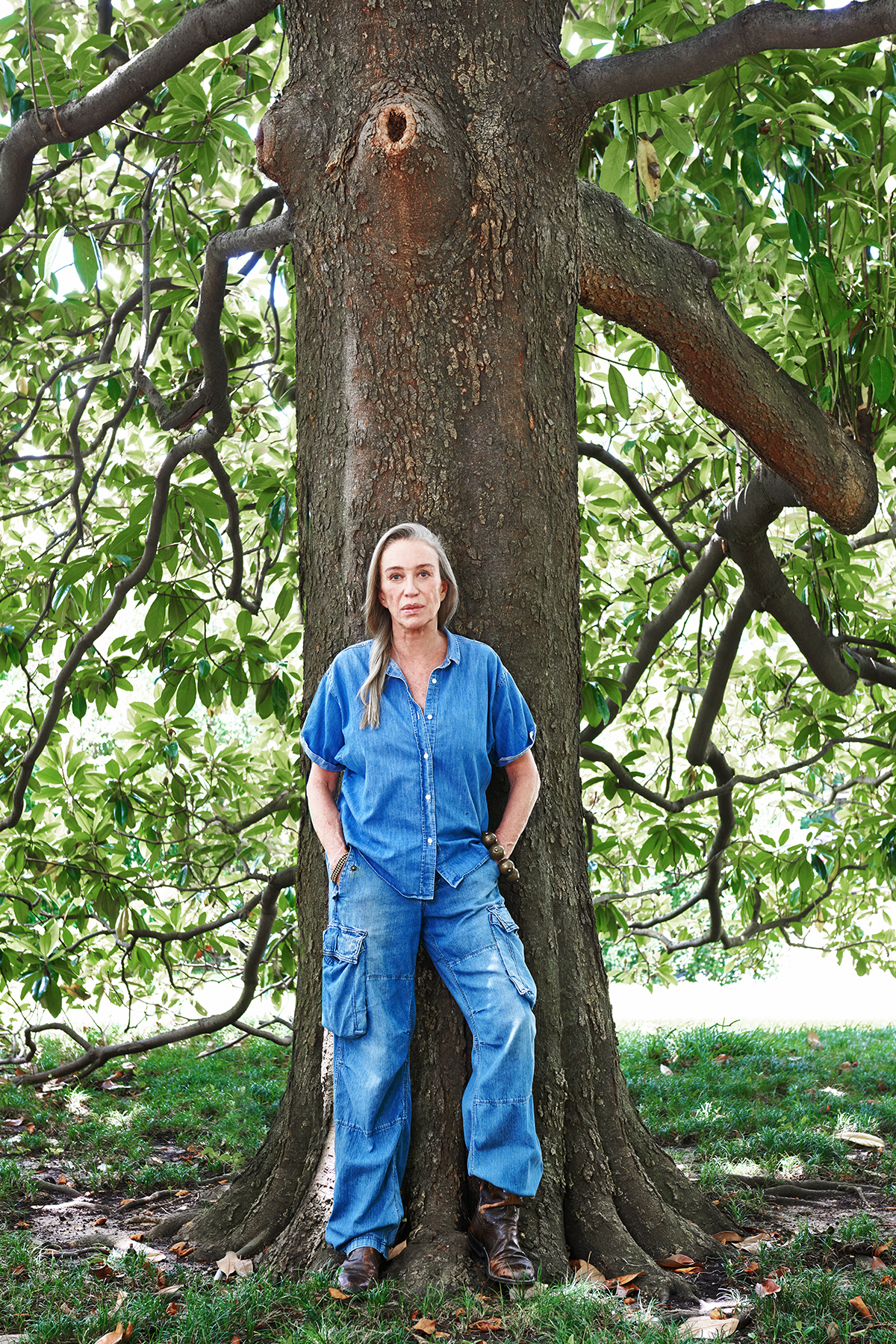
Jan Barboglio, 73
Founder, Jan Barboglio
Thirty years ago, before there was Jan Barboglio the collection—the romantic home decor line inspired by the culture and spirituality of old-world Mexico—there was Jan Barboglio the woman. A mother of three and an SMU graduate, Barboglio had been designing clothing with her sister, but she was also a sculptor, having learned metalworking on the Mexican cattle ranch where she grew up. Barboglio didn’t set out to start a home decor company, but when her sister saw the iron wax grabbers she had made for the various candelabra in her home, she wanted some, too—not to catch candle drippings as intended but to use as underplates instead. “I thought Oh, my, what a great idea,” Barboglio says with a laugh. From there, plates led to trays, which led to candlesticks and house blessing crosses. Now Barboglio’s creations—which have grown to include lighting, furniture, glassware, and more—can be found in Neiman Marcus stores and specialty boutiques around the country. “Stunned” is how Barboglio describes the way she felt when customers started requesting the pieces she was making in her Dallas basement. And she credits the people she works with for the success of what is essentially two businesses—the design, distribution, and marketing arm in Dallas, plus the Mexican factory where each punched-tin sconce, hand-forged iron bed, and mouth-blown glass vessel is crafted by skilled artisans. Though Barboglio has designed hundreds of pieces over the past three decades, only one brings tears to her eyes when she recalls its genesis.
Dubbed Angel d’ Fuego, the series of gesso and stone angel sculptures was damaged in a fire at her workshop, but Barboglio was enchanted by the patina the flames left behind. So she topped each of the singed angels with a nickel crown of butterflies to symbolize their resurrection. “I almost start crying when I talk about these pieces,” she says. “It’s so silly, but I do love that angel.” Rebirth will also be a theme in Barboglio’s upcoming spring collection, which will include 10 pieces selected from her seminal line. “Looking backwards to go forward,” she calls it. We call it a welcome comeback for the Dallas originals that introduced Barboglio’s signature soulful touch to homes across America. —R.R.
Tasha Schwikert
Associate, Munck Wilson Mandala
Schwikert, an Olympic gymnast turned lawyer, has always been outspoken. Her mother once compared her to Dennis Rodman because of her testy approach to the sport. She personally spoke out against Larry Nassar in 2018, and she continues to speak out on behalf of female athletes as she negotiates their contracts and develops a new sports law practice for Munck Wilson Mandala. — S.K.
Janette Monear
President and CEO, Texas Trees Foundation
For the past 14 years, Iowa native Monear has made it her mission to “green” North Texas. And with her at the helm of the nonprofit Texas Trees Foundation, no tree-planting project has been too bold. Case in point: the group’s ambitious effort to transform Dallas’ Southwestern Medical District with a visionary landscape redesign, including a therapeutic 10-acre park. — R.R.
Shonn Brown
Vice president and deputy general counsel, Kimberly-Clark
As the chief litigator at Kimberly-Clark, Brown spends her days advising on public policy issues or leading the company’s global inclusion and diversity committee. She says her work aligns with her personal mission for the educational advancement of girls and women, particularly those of color. Recently, Brown became chair-elect for Hockaday’s board of trustees, and she’s also co-chairing the 50/50 Women on Boards organization in Dallas, a national campaign committed to creating gender balance and diversity on corporate boards. “That will take up quite a bit of time,” she says, “but when you surround yourself with people who are in the same boat, it allows you to have a support system. You’ve got great productive people around you who are going to be able to pick up the slack.” —A.K.
Evelyn Mayo, 26
Urban Research Initiative Fellow, Paul Quinn College
When you graduate from the College of Constructive Hell-Raising, being a fiery change-maker seems inevitable. The cheekily named five-month course from Downwinders at Risk, a clean air advocacy organization in Dallas County, pairs grassroots organizing theory with real-life local legends who have fought against racial injustice or for LGBTQ rights. For Mayo, it was a crash course in Dallas history—and the driving force for what she intends to do for the city’s future. She’s part of the large effort to raze Shingle Mountain, the massive mound of toxic waste that at one point contained more than 54,000 tons of discarded roofing materials.
I would like to see a proactive city. Putting out fires is not going to build a strong city.
The environmental atrocity led Mayo to create In Plain Sight, a research project that details code and zoning violations on industrial properties in southern Dallas. Mayo found that at least half of those properties have infractions, which suggests Shingle Mountain was not an anomaly but an almost certainty. “Poisoned by ZIP Code: An Assessment of Dallas’ Air Pollution by Neighborhood,” a report by Mayo and others, used publicly available records from the Texas Commission on Environmental Quality to tally up the pollution burden by ZIP code. It found, as was suspected, highly polluted areas exist in West Dallas and southeast Oak Cliff. From that research, the Urban Research Initiative fellowship at Paul Quinn College was born. As its inaugural fellow, Mayo will, for the next two years, lead research aond advocacy efforts to use planning as a tool to address systemic racial injustices in southern Dallas. By making pollution data more accessible, it gives neighborhood groups and residents the information they may need to fight for a better environment in their community. “I would like to see a proactive city,” she says. “Putting out fires is not going to build a strong city.” —R.S.


